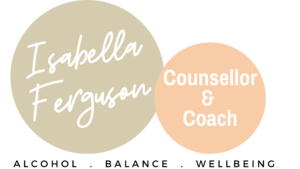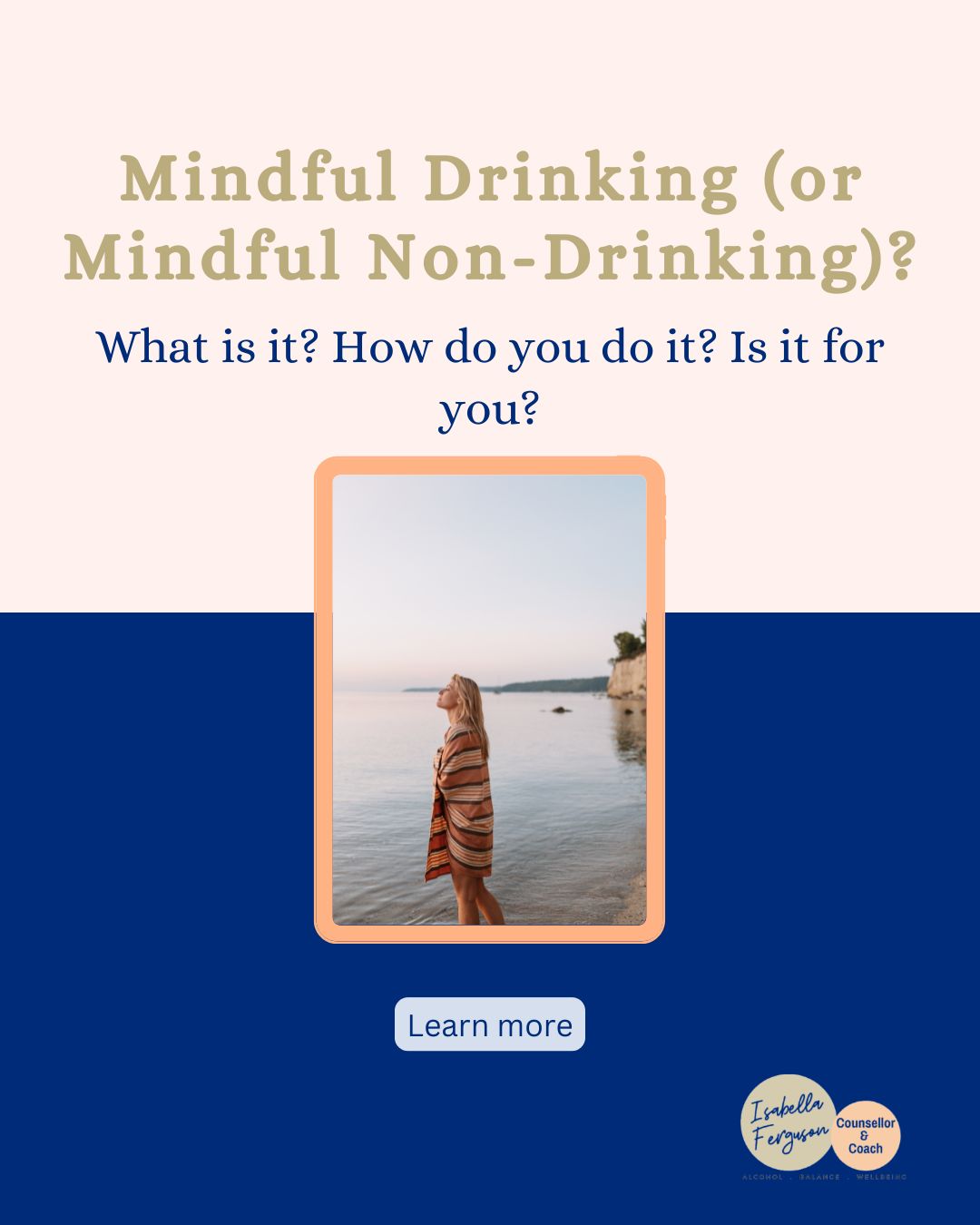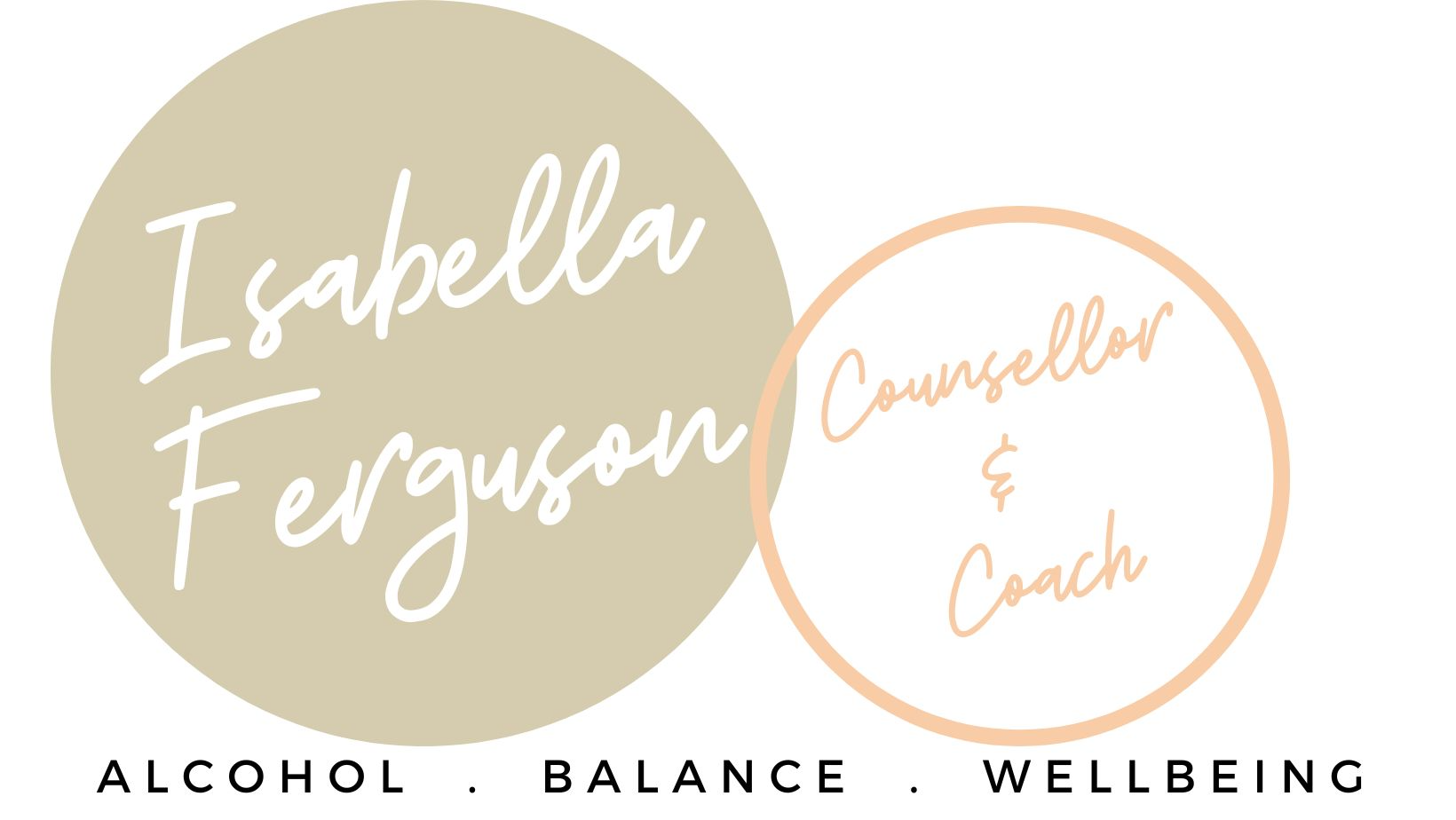What is Mindful Drinking (or Mindful Non-Drinking)?
Mindful Drinking
“I would like to drink mindfully at some point” is something that I hear all the time from clients. Whilst some clients are clear from the outset that their goal is to embrace an alcohol-free life, others want to significantly cut back but be free to drink mindfully and have one or two every now and then. Ultimately, it all comes down to what works for you, but Mindful Drinking does not come without its risks and some people are more suited to it than others. So, I thought it would be helpful to clarify what Mindful Drinking entails, and what the pros and cons are.
What is Mindful Drinking?
In a nutshell, Mindful Drinking is an intentional practice of being fully present with your alcohol consumption, paying attention to when, why, and how much you drink. It’s about making conscious choices regarding alcohol rather than relying on autopilot or societal pressures. Note: Mindful Drinking assumes that you can always exert conscious control over your consumption.
How do you drink mindfully?
Mindful Drinking involves a fair amount of pausing, reflecting and self-control. It can be exhausting and is not for the faint hearted. It is for this reason that many people find it easier to abstain all together. These are the primary elements of mindful drinking:
- Setting your intention before you drink and sticking to it: Ask well beforehand how much do you feel comfortable drinking? If you go above this limit, perhaps Mindful Drinking should be off the table? Note: At its upper limits, to drink mindfully, you need to stick within the health guidelines, which comprises no more than 4 standard drinks in any one sitting and no more than 10 per week. Of course, you may (and you should in my view) set lower limits than this.
- Understanding your non-negotiables: Reflect on what you are no longer prepared to do when it comes to drinking, ie Drink alone? Drink at home? Drink during the week? Pre-load or post-load? To not be fixated on alcohol? Get clear on these and stick to them. If you break one, is it a sign that Mindful Drinking isn’t for you?
- Understanding why you are seeking to consume alcohol: For example, are you drinking for the taste, to relax, to fit in? Importantly, is this reason true or are you chasing the dopamine/GABA hit? Consider how you’re feeling and what you hope to gain from alcohol in that moment.
- Savouring the drink slowly: Focus on the sensory experience—taste, smell, and texture. This awareness helps you slow down and prevents overconsumption.
- Monitoring: Maintain a journal to track how much you’re drinking and any associated emotions. This can reveal patterns and help you address underlying issues.
- Exploring alternatives: Mindful drinking often includes exploring alcohol-free alternatives, such as mocktails or sparkling water, in social situations.
Who is Mindful Drinking NOT for?
In my opinion, Mindful Drinking is not for anyone who:
- has an Alcohol Use Disorder (certainly not a moderate or severe AUD), or
- has had an AUD and has had alcohol within the last 12 months.
I advocate for a lengthy period of abstinence of at least 12 months for those that have or have had an AUD. In fact, best to ask your GP about their opinion on reintroducing alcohol into your life after an AUD. It is important and a lot easier to keep alcohol off the table for you during this crucial time. After this period, you might just feel that you are happier and healthier without reintroducing alcohol into your life!
Pros to Mindful Drinking
Mindful drinking as a concept can facilitate people to drink consciously, set intentions and develop clear guidelines about what a healthy relationship with alcohol looks like to them. If drinking mindfully works for you and you end up drinking significantly less than what you did when on autopilot, then this is a positive behaviour change. (Even if you mindfully drink, I still recommend committing to several alcohol-free periods throughout the year to gain the biological and cognitive benefits of a reset.)
Cons to Mindful Drinking
While this method has its merits, it has its risks and downsides, especially for individuals who may be more vulnerable to problematic drinking.
Mindful Drinking as a Slippery Slope: One of the primary concerns with Mindful Drinking is that it can create a false sense of control for people with a history of AUD. Those with AUD might believe they can moderate through mindful practices, only to find themselves slipping back into harmful patterns. Research shows that moderation strategies for individuals with AUD often fail because of underlying neurological and psychological mechanisms that make it difficult to control alcohol intake once a drinking episode begins. For those who have a history of dependence, even small amounts of alcohol can trigger cravings that undermine the goals of mindful drinking. Why risk falling back into old patterns?
Underestimating the Addictive Nature of Alcohol: Alcohol is addictive. Its effects on the brain’s reward system make moderation more challenging than anticipated. Mindful Drinking assumes that you can always exert conscious control over your consumption. However, alcohol’s impact on cognitive functions like impulse control makes it more difficult for you to stop drinking once you’ve started, even if you have set an intention to drink mindfully. This cognitive impairment can hinder the effectiveness of Mindful Drinking in preventing excessive consumption. Hence the great focus, energy and self-control that is required to successfully navigate Mindful Drinking.
Neglecting Social and Environmental Triggers: Another danger is the potential to overlook or underestimate the power of social and environmental cues that influence drinking behaviour. Most of us tend to drink in social settings where others are not practicing mindful drinking, leading to peer pressure or subtle encouragement to drink more. Additionally, the atmosphere—whether it’s a party, bar, or family gathering—can undermine intentions to stay mindful, making moderation much harder. In these contexts, mindful drinking may feel isolating or unsustainable, as individuals find themselves constantly justifying their choices or feeling pressured to conform to the group’s drinking habits.
Perpetuation of Harmful Patterns: Mindful drinking can sometimes mask an underlying reliance on alcohol to cope with stress, anxiety, or social discomfort. While mindfulness practices encourage awareness of motivations for drinking, this may not be enough to break the cycle of using alcohol as a coping mechanism. The risk here is that Mindful Drinking can perpetuate harmful emotional patterns by allowing alcohol to remain part of a person’s routine, even if consumption is reduced. Research also suggests that those who struggle with using alcohol as a form of emotional regulation are more likely to relapse into problematic drinking when they attempt moderation rather than complete abstinence.
Reinforcing our Alcohol-Centric Culture: Another critique of Mindful Drinking is that it keeps alcohol at the centre of social and personal rituals, which can reinforce the idea that alcohol is essential to relaxation, celebration, or unwinding after a stressful day. While mindfulness can help us become more aware of our choices, the continued integration of alcohol into our lives may hinder long-term behaviour change and personal growth. In this way, Mindful Drinking can inadvertently contribute to the normalisation of alcohol consumption, obscuring the dangers of alcohol, such as its very real health risks. For instance, individuals who practice mindful drinking might feel comfortable drinking small amounts daily without recognising the cumulative health effects.
Conclusion
While Mindful Drinking can be a helpful strategy for those looking to significantly moderate their alcohol intake, it is not without its dangers. Those with a history of alcohol dependence or at risk of addiction, Mindful Drinking may offer a false sense of control, leading to relapse or unintentional overconsumption. Social pressures, environmental triggers, and alcohol’s addictive nature can also make Mindful Drinking less effective than intended. Moreover, it can perpetuate reliance on alcohol and obscure the long-term health risks associated with even moderate drinking.
If you are considering going down this path, what is clear, is that it is important to be honest with yourself around your intentions, your non-negotiables and if you are adhering to the Mindful Drinking concept. Ultimately, it is essential to approach Mindful Drinking with caution and recognise that for some, abstinence may be a safer and more sustainable path to a healthier and happier life.
I hope you found this information valuable. Please reach out if you have any questions or would like further information about reducing your alcohol consumption. Alternatively, consider joining my Alcohol Revolution Program. Learn more about it here.
|
|









